Towards evidence-based care in ageing: GERI at the Evidence and Implementation Summit (EIS) 2025
20 November 2025
GERI’s collaborative research in dementia care, frailty programmes in primary care and telehealth were featured at EIS 2025 held in Melbourne.
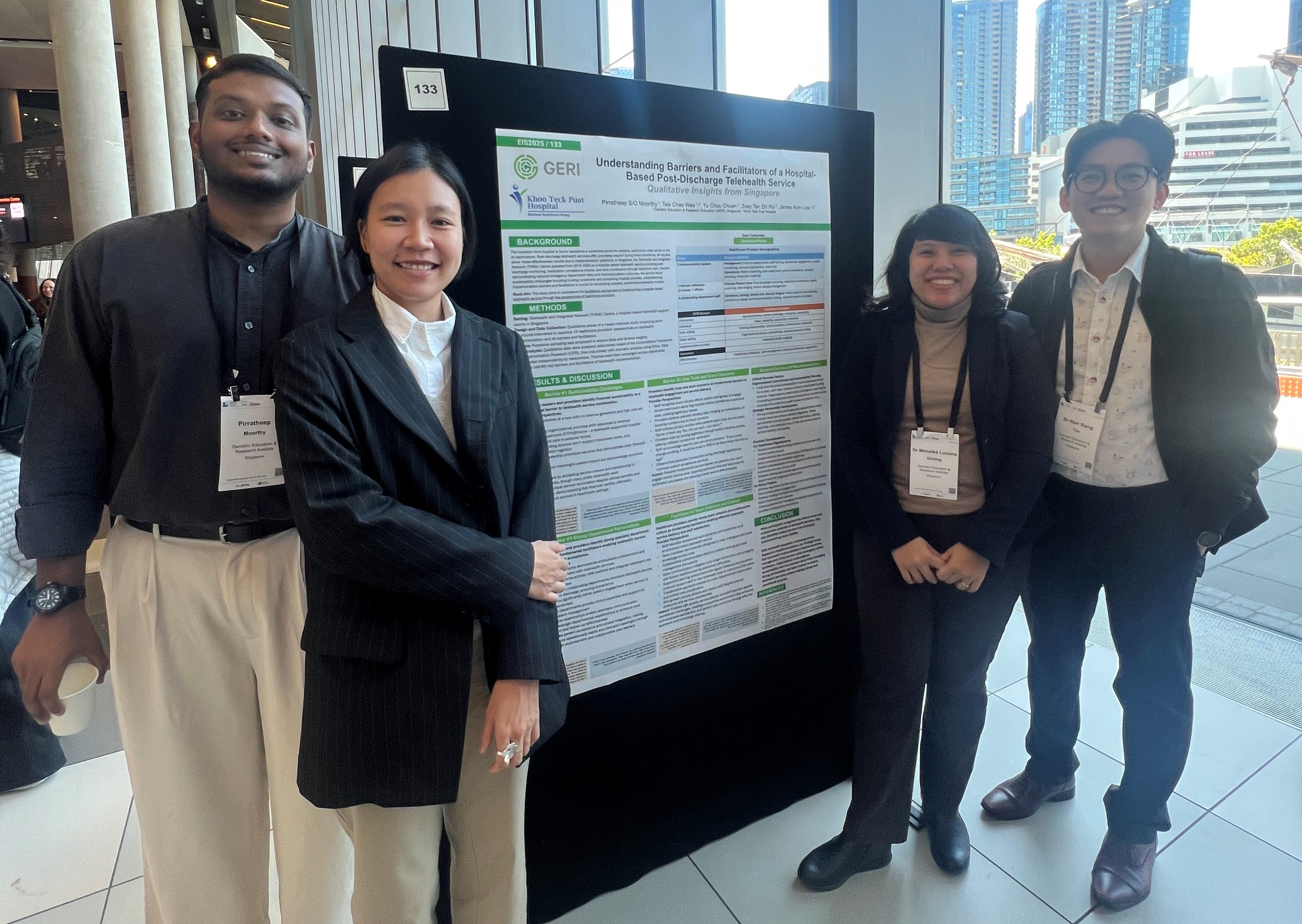
GERI had a strong showing at the Evidence and Implementation Summit 2025, highlighting our commitment to advancing evidence-informed care for older adults in close collaboration with our community and healthcare partners.
Dr Nien Xiang Tou, Research Fellow, gave a presentation on theorising implementation mechanisms for a community-based exercise intervention for people with dementia.
"To better translate evidence into practice, there is a need to focus on implementation mechanisms so that we can design implementation strategies more thoughtfully," said Dr Tou.
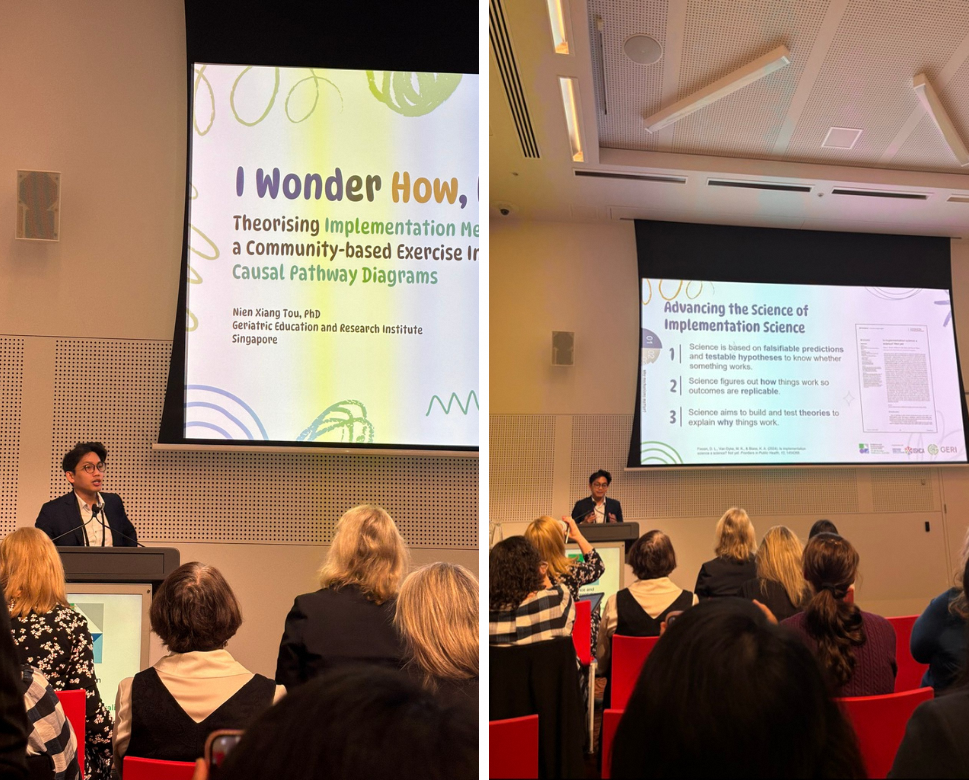
Dr Tou Nien Xiang presents research on exercise for community dementia care. Images: GERI
Causal pathway diagrams, Dr Tou noted, could help us think about these mechanisms by explicitly illustrating mental models on how strategies could achieve specific outcomes. More broadly, studying implementation mechanisms could help researchers in the field build generalisable theories beyond the notion that “implementation depends on context”.
Dr Tou’s talk was based on a pilot study that he is leading, in collaboration with Dementia SG, on implementing a minimal-equipment resistance exercise in a dementia daycare setting. The goal is promoting evidence-based exercise prescription practice to benefit people with dementia.
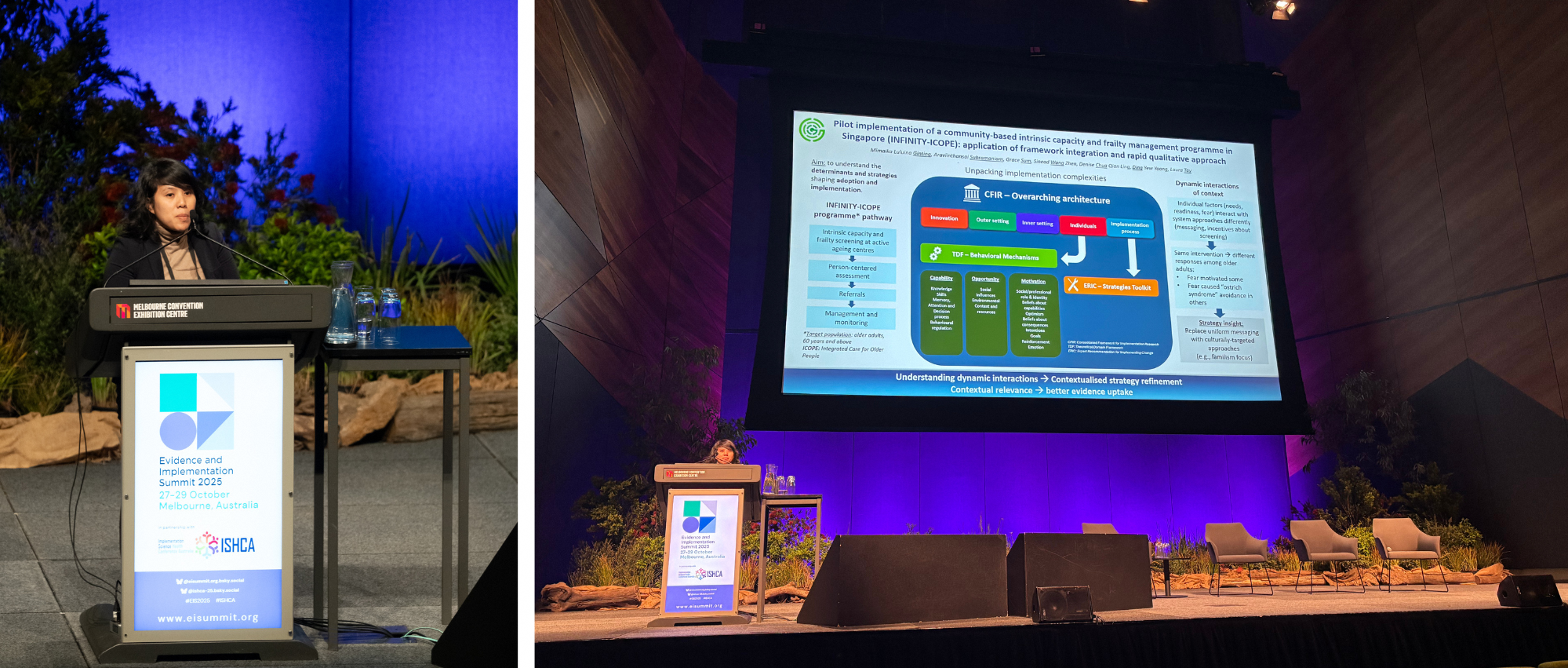
Dr Mimaika Ginting presents GERI’s research for INFINITY-ICOPE. Images: EIS and GERI
Dr Mimaika Luluina Ginting, Research Associate gave a talk on key factors and strategies driving successful adoption and implementation from the pilot of the INFINITY-ICOPE programme.
“Complex interventions operate at multiple levels, and using frameworks in isolation can create analytical blind spots,” Dr Ginting noted.
Her team found that individual factors interact with system approaches differently, with the same intervention producing different responses across contexts. Understanding this dynamic interaction helps implementers develop more contextualised solutions and refine their strategies.
Dr Ginting’s talk was based on GERI’s implementation research for INFINITY-ICOPE, a nationally-funded study led by Sengkang General Hospital. INFINITY-ICOPE coordinates screening and management of frailty and intrinsic capacity deficits for community-dwelling older adults, and is conducted at Active Ageing Centres.
Elsewhere at EIS 2025, GERI researchers also presented posters on two studies aimed at reaching older adults in our community.
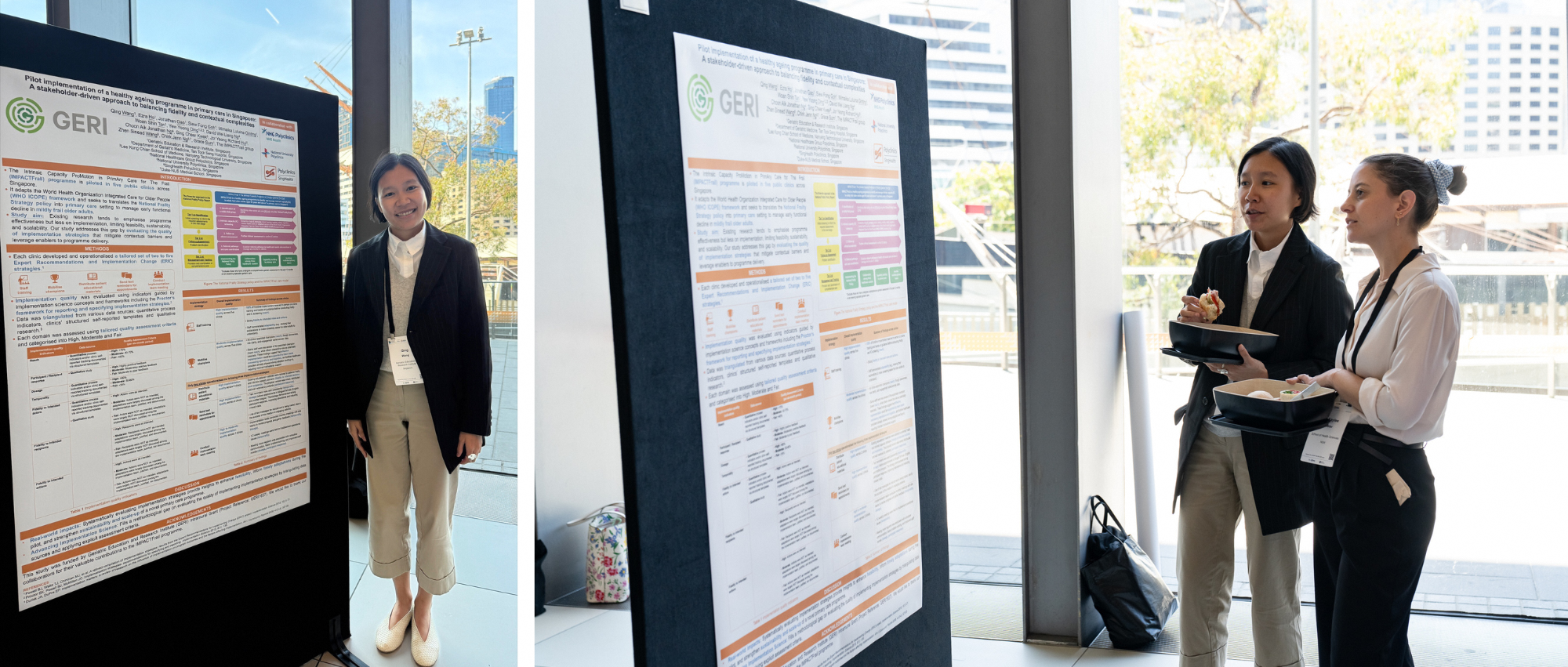
Wang Qing Irene with her poster on IMPACTFrail pilot programme. Images: EIS and GERI
Wang Qing Irene, Research Associate's poster was based on GERI’s cross-cluster pilot of the IMPACTFrail programme which seeks to translate the National Frailty Strategy policy into primary care. Irene’s poster illustrated insights from the study team’s use of a stakeholder-driven approach to balance implementation fidelity and contextual complexities. Systematically evaluating implementation strategies provides insights to enhance feasibility, guide timely adaptations, and strengthen sustainability and scale-up.
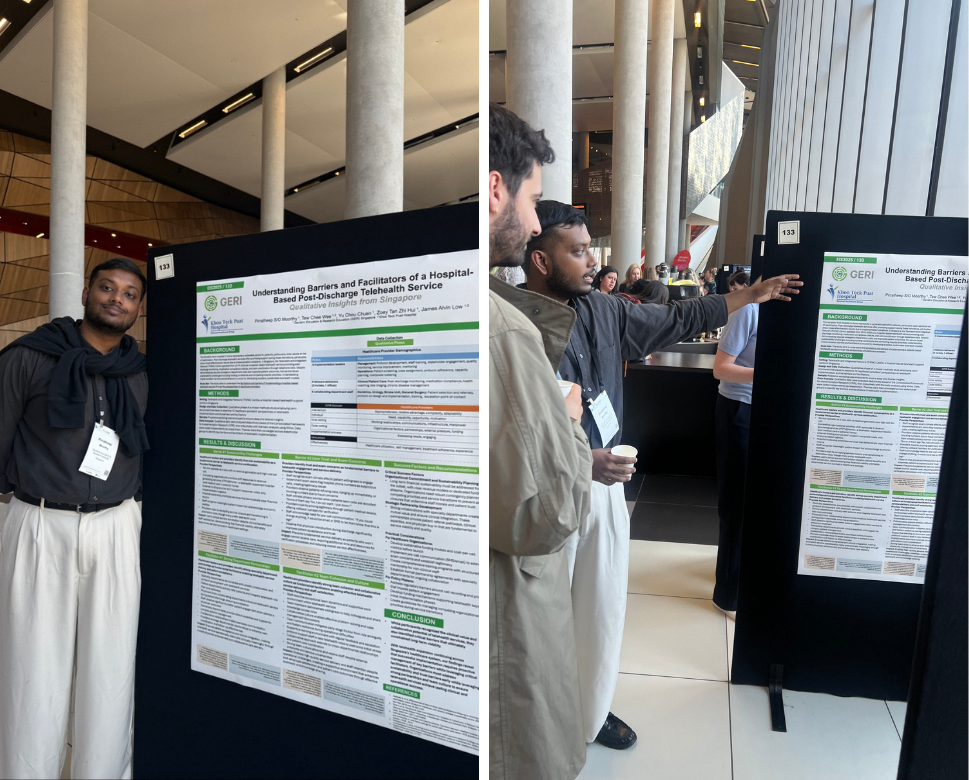
Pirratheep Moorthy with his poster on the THINK telehealth study. Images: GERI
Pirratheep Moorthy, Research Officer, shared findings the THINK study, which evaluated a hospital-based post-discharge telehealth service in terms of barriers and facilitators to delivery, patient outcomes and resource utilisation. Some findings include the importance of viable funding models for the success of telehealth, the significant impact of trust barriers on patient engagement with the service, given Singapore's scam-conscious environment.
Follow GERI on LinkedIn for more updates on our researchers in action.
